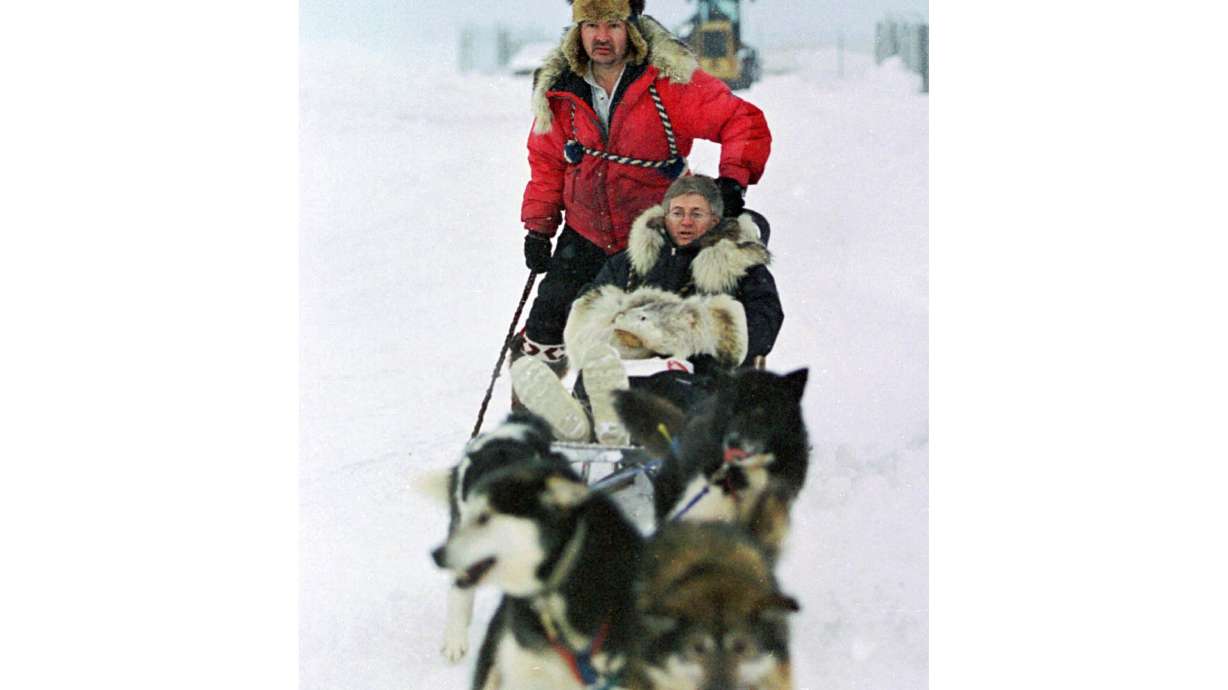Estimated read time: 3-4 minutes
This archived news story is available only for your personal, non-commercial use. Information in the story may be outdated or superseded by additional information. Reading or replaying the story in its archived form does not constitute a republication of the story.
America’s decennial census begins Tuesday in rural Alaska, as it has out of tradition and necessity since the U.S. bought the territory from Russia in 1867.
The Census Bureau starts the tally in Alaska more than two months before the rest of the nation so it can reach residents in remote villages before the spring thaw, when they scatter to fish and hunt.
This year, the first people being counted are in Toksook Bay, a town of about 660 on the Bering Sea.
To mark the occasion, The Associated Press is republishing this article from 20 years ago, when the census began in the rural Alaska town of Unalakleet. It first appeared Jan. 20, 2000.
___
Census 2000 begins in Alaska village
By MAUREEN CLARK
UNALAKLEET, Alaska — The sun was barely up at 11 a.m. Thursday when Census Bureau Director Kenneth Prewitt, bundled up in a fur parka, mittens and heavy boots, knocked on the door of a small wood-frame house in this western Alaska village to begin the nationwide headcount.
Stanton Katchatag, an 82-year-old Inupiaq Eskimo elder, welcomed Prewitt into his home in this isolated, windswept village near the frozen Bering Sea and became the first American to participate in Census 2000.
Fifteen minutes later, the director came back out into temperatures just above zero.
"We are very excited to have taken our first enumeration," Prewitt said before getting on a snowmobile for a ride to another house.
Unalakleet, situated about 400 miles (644 kilometers) northwest of Anchorage, is accessible only by plane or snowmobile this time of year. Most of its 800 residents are Inupiaq or Yupik Eskimos.
While such an out-of-the-way place may seem an unlikely spot to begin the head count, census officials said they need to reach Alaska Natives in winter, before they leave their villages for spring fishing and hunting.
In addition, travel is difficult in rural Alaska during the spring. Frozen rivers that serve as highways for snowmobiles during winter are treacherous when the ice melts.
Mayor Henry Ivanoff said he was pleased that Unalakleet — and Katchatag — had the distinction of being first in the nation.
"There are 275 million people standing in line after him, including the president and vice president of the United States — even Michael Jordan!" Ivanoff said.
The community put out a warm welcome for Prewitt and the census workers. Native dancers and cheerleaders performed and community leaders made speeches before residents sat down for dinner in the school gymnasium Wednesday night. Tables were laden with home-cooked foods, including moose, caribou, muktuk and smoked salmon.
While the mood was celebratory, community leaders were serious about the importance of an accurate count.
Census data is used for reapportionment of congressional seats, drawing legislative districts and school district boundaries and determining how much state and federal funding a community will get.
"It will affect the funding we receive from the Indian Health Service," said Larry Ivanoff, president of the local tribal organization.
Twenty census workers, some of them fluent in Yupik or Inupiaq, will go door-to-door throughout Unalakleet to gather data over the next few days.
Prewitt said he hopes Unalakleet will set an example of participation for the rest of the country.
After Alaska, the Census Bureau will turn its attention to other rural areas of the country — from the bottom of the Grand Canyon to the Adirondacks — where a lack of street names and numbers makes it impossible to deliver census forms by mail.
About 100 million census forms will go in the mail for the rest of the nation in mid-March. The agency expects to have most of the forms back by April 11. After that, census workers will hit the streets and try to track down those who haven't sent their forms back.
Copyright © The Associated Press. All rights reserved. This material may not be published, broadcast, rewritten or redistributed.








